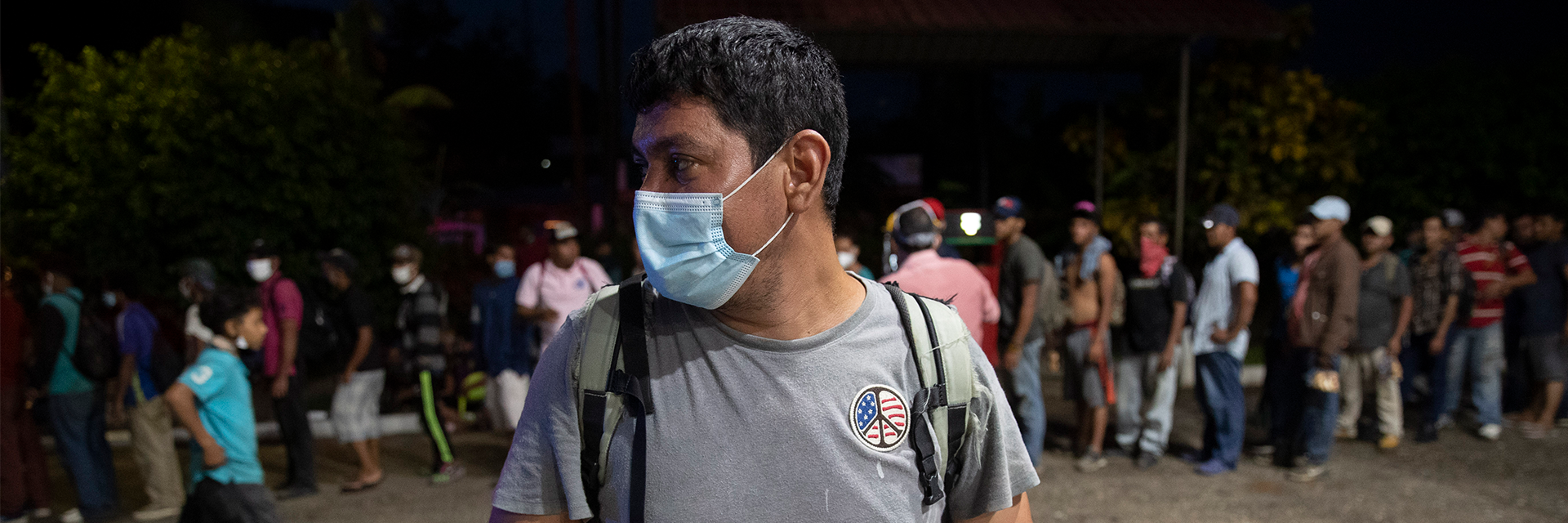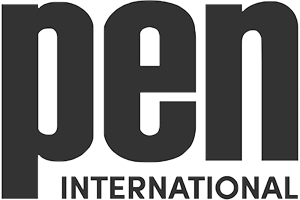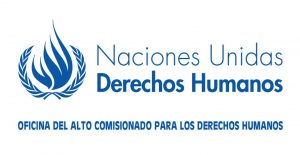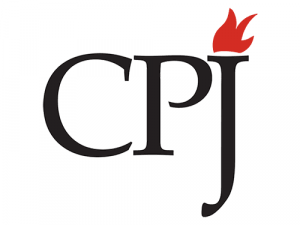
Honduras
Protecting Your Voice In A Pandemic:
A COVID-19 Free Expression Information Center
In response to—and under the cover of—the COVID-19 global pandemic, governments around the world have implemented strict surveillance measures and exacerbated preexisting restrictions on free expression. PEN America has created this page to help journalists, writers, human rights defenders, and protestors equip themselves with the knowledge and tools to protect their rights and continue their important work. Below, you will find the latest news and key developments from Honduras—to learn more about what is happening on the ground in other countries, click through our pages on Ukraine, Myanmar, and Uganda.
Sign up to Receive Free Expression Updates on Honduras
The Latest
Last updated on 07/23/2021.
07/23/2021

The Latest
As of July 21, Honduras has reached 282,686 COVID-19 infections and 7,507 deaths from the virus. On July 20, a coordinator of Ofraneh, the Honduras Black Fraternal Organization, demanded that a special prosecutor be appointed to investigate the disappearances of several Garífuna leaders. Meanwhile, on July 18, international human rights defender Marine Pezet was denied entry into Honduras. Counselor Donny Reyes has petitioned the Minister of the Secretariat for Human Rights and the Director of the National Protection System to provide a report to the Protection Council. This week, the United States Department of State has also banned President Porfirio “Pepe” Lobo and his wife from entering the U.S. territory due to corruption scandals. In addition, according to a recent report released by Cohep, the Honduran Council of Private Enterprise, violent and nonviolent crimes are costing the private sector enormous amounts of money and are driving inequality in the country. Lastly, defenders of Bajo Aguán have denounced a new strategy to persecute them. In a public statement, the Agrarian Platform denounced the Technical Criminal Investigation Agency (ATIC) for attempting to bribe protected witnesses with the facilitation of visas in order to accuse human rights defenders of the Gregorio Chávez Peasant Associative Company of being involved in the crime against Santos Marcerlo Torres.
The Latest
As of July 12, the National Congress (CN) has yet to approve the funds that the National Electoral Council (CNE) has requested to guarantee a transparent electoral process. This comes nearly four months after general elections took place in Honduras. According to Criterio, the Honduran government has continued to lie and make false promises about COVID-19 vaccination efforts. Throughout June, Honduras received about 60,000 doses of the Pfizer vaccine and more than 1.5 million doses of Moderna. While the government claimed 1 million people would be vaccinated by the end of June, this was not the case. As of July 12, there are reportedly four variants of COVID circulating throughout the country and more than 7,000 confirmed deaths from the virus.
On July 13, the Supreme Court of Justice (CSJ) admitted an unconsitutionality appeal to decriminalize abortion in Hondruas for three reasons. The petition was signed by about 20 women’s rights and human rights organizations. A number of human rights organizations have drafted a proposal for the Anti-Discrimination Equality and Equity Law (LIE), which, if approved, will protect individuals from suffering discrimination based on skin color, religion or beliefs, language, sexual orientation and gender identity, social condition, age, disability, or immigration status, amog other characteristics. The proposal has been presented to the National Congress. On June 26, 2021, the Inter-American Court of Human Rights issued a historic ruling that Honduras violated the rights to life and personal integrity of a transgender woman murdered in 2009. Honduras has one of the highest murder rates of transgender people in the world and many LGBT people in the country live at great risk of violence, according to a report from Human Rights Watch published in November 2020.
The Latest
In July, journalists and human rights groups have continued to fight for better access to information in Honduras.Julio Vladimir Mendoza, Commissioner of the Institute for Access to Public Information (IAIP), recently stated that at least 320 obligated institutions did not comply with their responsibility to provide public information under the Law of Transparency and Access to Public Information. Free expression organization have been keeping an eye on the Institute for Access to Public Information (IAIP) and the College of Journalists of Honduras (CPH) who have begun a collaborative effort to train journalists on the subject of access to information. This comes after leaders of CPH had repeatedly violated the Law of Transparency by hiding information on funding. In a public letter, the Office of the United Nations High Commissioner for Human Rights in Honduras (OHCHR) and the Inter-American Commission on Human Rights (IACHR) called on Honduran authorities to grant access to the trial of David Castillo for the murder of activist Berta Cáceres, as family members as well as members of COPINH and accompanying organizations have been restricted access to the trial since it began.
The past few weeks have also generated some movement toward accountability for crimes against female activists, journalists, and women in Honduras. Presidential advisor Marvin Ponce has made a public apology to journalist Grethel Alemán Guevara for sexually inappropriate messages that were sent from his account to the journalist over Facebook Messenger. The feminist LGBTQ organization Cattrachas has announced the launch of the Keres Femicide Observatory, which will research and analyze the failures of the justice system when it comes to femicides in Honduras. Finally, some degree of justice has been achieved for Berta Cáceres as David Castillo was declared guilty on July 5 by the Chamber I of the Sentencing Court with National Jurisdiction as a co-actor in the murder of Berta Cáceres by a unanimous decision.
HUMAN RIGHTS DEFENDER SHOT TO DEATH IN TOCOA
Juan Manuel Moncada, a human rights defender and leader of the Gregorio Chávez peasant enterprise, died from gunshot wounds on Tuesday, July 6 in Tocoa after repeatedly reporting threats directly to the Public Ministry. The Office in Honduras of the United Nations High Commissioner for Human Rights (OHCHR) publicly condemned the State of Honduras for not taking more preventative measures to avoid the violent the murder of Moncada. There had been repeated complaints sent from human rights defenders in the Bajo Aguán area following the murder of Santos Marcelo Torres, another member of Moncada’s peasant company,who died on June 16.
INTERNATIONAL DELEGATION ADVOCATES FOR THE FREEDOM OF ENVIRONMENTALISTS FROM THE US
The international solidarity delegation “Vamos a la Milpa” has declared its support for eight imprisoned defenders from the Guapinol area. The group –made up of religious leaders, teachers and activists– met with seven of the eight detained defenders on July 6 and are planning to hold an appointment at the U.S. embassy in Honduras. The group has pushed forward the environmentalists’ mission of defending the Guapinol rivers and has advocated on behalf of the community to end mining in Guapinol.
CATTRACHAS ANNOUNCES THE LAUNCH OF THE KERES FEMICIDE OBSERVATORY
The feminist LGBTQ organization Cattrachas has announced the launch of the Keres Femicide Observatory, which will research and analyze the failures of the justice system regarding feminicdes in Honduras. The center is aimed at registering and following up on femicide cases from investigation to autopsy to trial. It will also report onimportant demographic information regarding each crime, including whether the victim was black, a sex worker, or if they identified as LGBTQIA.
Key Developments
Below you will find significant governmental, civil societal, and technological trends shaping the state of freedom of expression in Honduras today.
Journalists Lacked Access to Information During Pandemic in 2020
The Asociación Por La Democracia Y Los Derechos Humanos de Honduras (ASOPODEHU) recently published a report on threats to free expression during the COVID-19 pandemic in 2020 with testimonials from various journalists and their networks across the country. In the report, journalists reported a dramatic limitation in their access to information due to COVID-19 restrictions, including the closure of state institutions, lack of transportation, loss of spaces, and an inability to perform coverage or interviews. All such difficulties were magnified by the general lack of transparency from state officials. Amongst threats of violence, an economic crisis, and the aftermath of Hurricane ETA and IOTA, the report emphasizes the importance of protecting the labor of journalism as Honduras continues to struggle with the pandemic.
Journalists live with extreme limitations due to COVID-19 and Hurricanes ETA and IOTA
According to Pasos de Animal Grande, journalists are facing an extreme economic crisis. In light of the COVID-19 pandemic and Hurricanes ETA and IOTA, journalists and other social communicators have been forced to live in shelters and assistance centers while still carrying out their work using their own resources. As a result, while the country faces disaster, there is a significant decrease in available information.
Being a Journalist in Honduras: Murders, Dismissals and a "Law of Secrets”
Over 400 journalists have been fired since the start of the COVID-19 pandemic. According to The Committee for Free Expression (C-Libre), “Honduran journalists are currently facing three serious situations: job instability, selective assassinations, and regulations approved by the National Congress to block their access to information and intimidate them for their independent exercise.” In particular, the Honduran government has made efforts to install legal systems that limit the free exercise of journalism and access to information through the “Law of Secrets“, the Penal Code, and the long debated cybersecurity law.
More than 470 demonstrations in 190 days of confinement, reflecting the discontent in Hondurans
The Office of the United Nations High Commissioner for Human Rights in Honduras reports that over 470 demonstrations have taken place in Honduras over the last 190 days. During these demonstrations, the government’s police force has regularly violated the rights of protestors, journalists, and human rights defenders. On several occasions, civilians have been shot, tear gassed, arbitrarily arrested, and beaten by law enforcement.
Cyber espionage of meetings and associations of civil society due to the pandemic
Due to the COVID-19 pandemic, the Honduran population has shifted to online methods in order to work and organize political and popular activities. Gilberto Rios, the national leader of Libre – Nueva Corriente, worries that these platforms are “besieged by a spy network from the government.”
Honduras' new penal code
On June 25, 2020, a new penal code came into effect in Honduras, representing severe setbacks for freedom of expression in Honduras. Human Rights Watch wrote that it could “criminalize the lawful exercise of the rights to protest and assembly.”
Honduran government declares state of emergency, suspends right to free expression
On March 16, 2020, in response to the COVID-19 pandemic, President Juan Orlando Hernandez declared a state of emergency in Honduras by signing PCM 021-2020. This presidential decree put forth a curfew, originally meant to last seven days, that is still in place today. The decree also revoked several constitutional liberties; among these was Article 72, which is meant to protect the right to free expression without censorship.
GET HELP:
Local Organizations
- Pasos de Animal Grande is a newspaper dedicated to helping journalists, media workers, and vulnerable groups in Honduras (including the youth, women, indigenous people, and the LGBTQ+ community).
- Revistazo is a magazine dedicated to forging a better and more transparent Honduras by helping combat corruption on all levels. Its fundamental purpose is to achieve structural changes, allowing Hondurans to live with greater dignity, especially those who are most vulnerable. Here is its guide to conducting a digital social audit on Honduras’ COVID-19 response.
- The Association for Democracy and Human Rights, directed by Dina Meza, is a non-profit and non-governmental organization aimed at supporting people who suffer human rights violations.
COVID-19 and FREE EXPRESSION:
Reports and Trackers
- OACNUDH: Protest Monitor in Honduras during COVID-19
- COFADEH: Human Rights Crisis during the COVID-19 Pandemic in Honduras
- Voces del Sur: Freedom of Expression, Freedom of Press, and Access to Information: Towards the 2030 Agenda
- Article 19: Censorship in Cuba, Guatemala, and Honduras
- Freedom House: Democracy Under Lockdown
- Article 19: The Global Expression Report 2019/2020
- University of Oxford: Coronavirus Government Response Tracker
- ICNL: COVID Civic Freedom Tracker
- Varieties of Democracy: Pandemic Backsliding Tracker
TAKE ACTION:
Tools
- PEN America: Online Harassment Field Manual
- Global Cyber Alliance: Cybersecurity Toolkit for Journalists
- Security In-a-Box: Digital Security Tools and Tactics
- Consumer Reports: Security Planner
- Tactical Tech: Holistic Security Manual for HRDs
- Front Line Defenders: Workbook on Security – Practical Steps for HRDs at Risk
Partner








